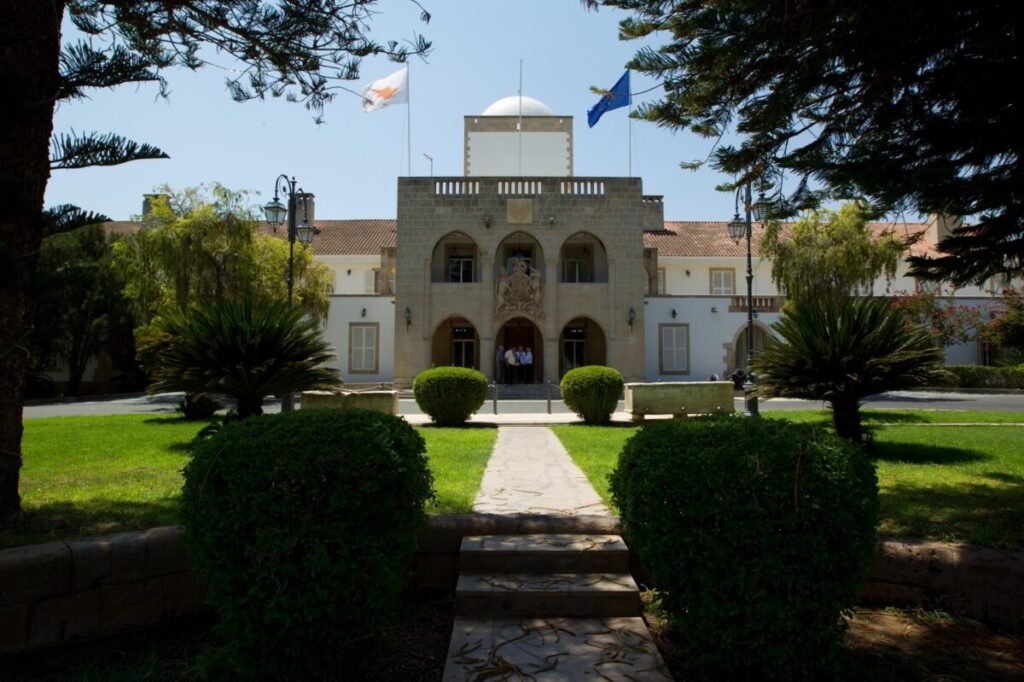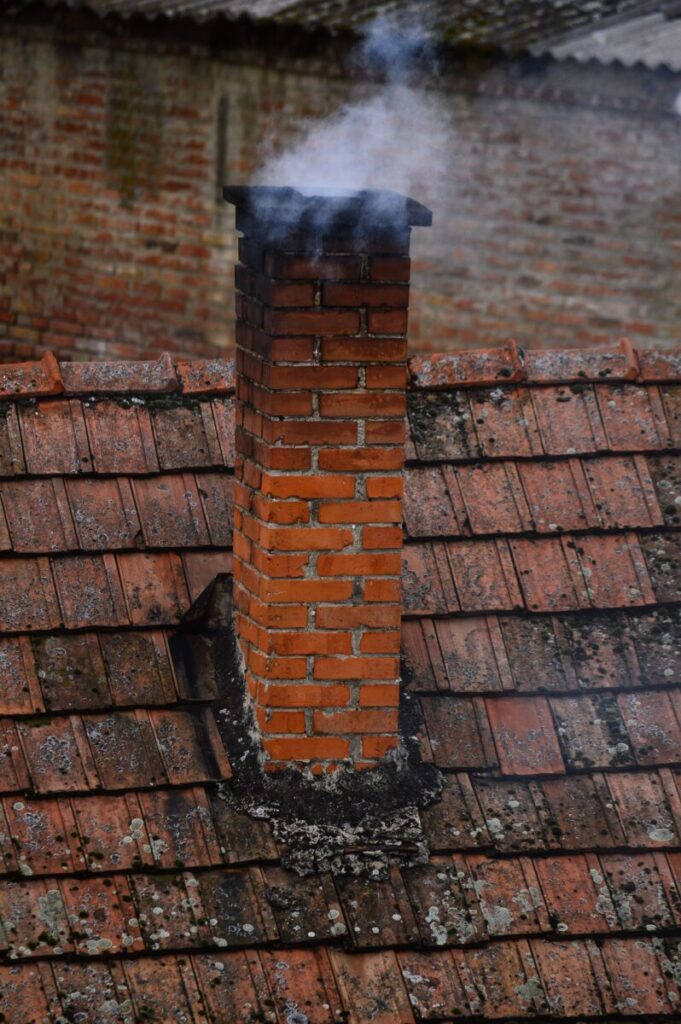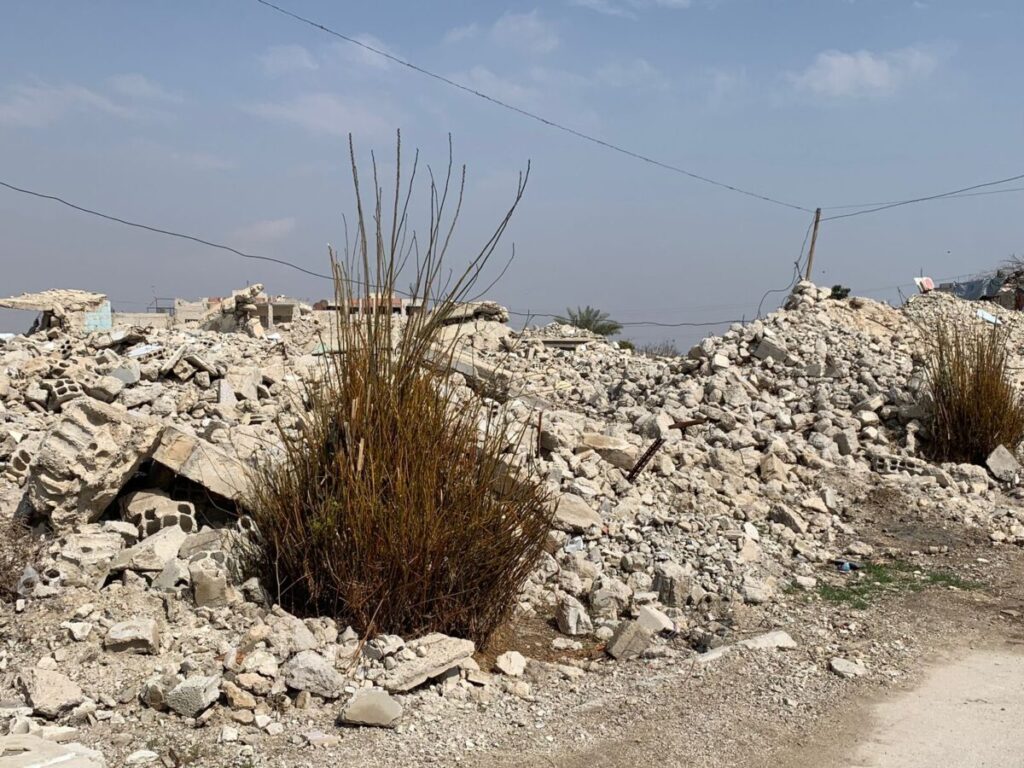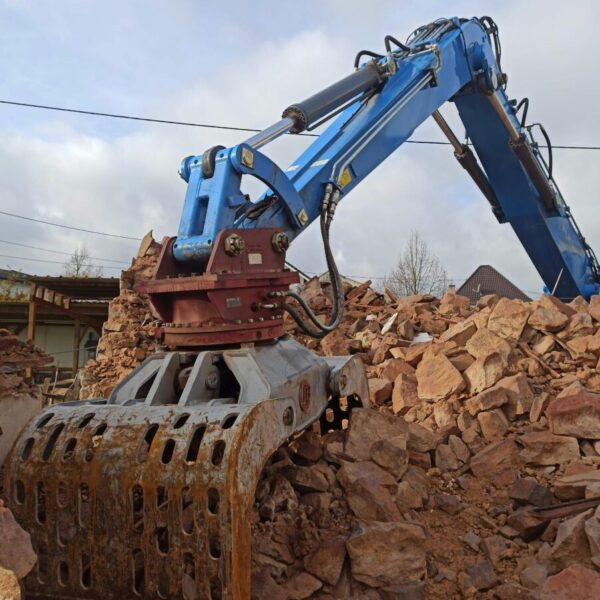As materials soar in price and empty buildings accumulate, the construction sector is attempting a discreet yet real transformation. A quiet shift, driven by multiple dynamics: climate urgency, social crisis, war. Everywhere, there is a search to rebuild better. To destroy less. To waste less. And sometimes, to repair more than to build. On this shifting ground, concrete initiatives are already inventing a more livable future.
This article, on the challenges of the construction sector, is a summary of 4 articles published in 22-med, available in the 11 languages used on the site.
In Cyprus, a zero waste presidential palace : Andri Kounnou - Cyprus
Public funds to combat energy poverty : Larisa Daugul - Slovenia
An app to recover building waste : Philippe Lesaffre - France
Rebuilding on the ruins of an ecological war : Edward Sfeir - Syria
Good intentions are not lacking in discussions about sustainable cities. But in reality, construction remains a massively polluting, extractive, and unequal sector. And yet, a tremor is being felt. Actions, often modest but tangible. Political choices, digital tools, and citizen gestures that outline a different way of thinking about construction. These are not yet widespread systems. But they are already proof that it is possible to do things differently.
A zero waste presidency

In Nicosia, on the heights of the Cypriot capital, the Presidential Palace stands out. It is now the first government building in the country to have obtained the "Zero Waste to Landfill" certification. And this is not just another green veneer: here, everything has been rethought, from the stainless steel water bottles of the staff to the composting of organic waste in the official gardens. The project was led by the First Lady, Philippa Karsera Christodoulides, in collaboration with the Minister of Agriculture.
This zero waste model aims to be replicable. An internal mapping has been developed to identify the waste flows specific to each administrative service. "We didn't just put recycling bins," specifies Irini Piki. "We had to analyze the uses, educate, and convince some staff to give up disposable items out of habit."
Changing mindsets took time. But today, everything is sorted, recycled, or reused: paper, plastic, glass, batteries, food waste. "Habits have changed, and with them, the perception of space. The place of power has become a place of coherence," notes Irini Piki, Deputy Minister to the President. The ambition now? To spread this model to ministries, transform the presidential garden into an urban organic farm, and even install the largest non-industrial composter on the island. Here, the symbol has taken shape.
Renovate rather than heat wastefully

On the opposite end of the spectrum, in Slovenia, the project is more social than symbolic. There, the issue is called energy poverty. About 62,000 households, or 5% of the population, cannot afford to live in properly heated housing. The public environmental fund, Ekosklad, is trying to remedy this with subsidies. Up to 18,000 euros are available to insulate a roof, change a facade, or install a heat pump. With one condition: to be accompanied.
However, the system remains improvable. "Processing times are long, sometimes discouraging," laments Mojca Kepic, a member of Slovenska Karitas. The humanitarian organization, very active in winter, receives calls from families who cannot even afford to wait for the end of the procedures. For them, occasional help with bill payments remains the only option.
Ludvik Hriberšek, an energy advisor from the ENSVET network, travels across the northeast of the country. He enters abandoned houses, homes with gaping windows, roofs that leak. He sees, he lists, he prioritizes. "We always start with what is leaking. There’s no point in having a new facade if the roof lets in water." It’s pragmatic, surgical. And often vital. Because for single-parent families, the elderly, and part-time workers, these renovations are a matter of survival. And of reducing emissions.
Reuse starts at the construction site
What if it only took a click to save a door? In the Paris region, the Cycle Zéro app allows individuals to recover construction waste for free: windows, boards, cables, basins… What was destined for a dumpster becomes raw material for artists, craftsmen, or families who renovate themselves. Behind the project are three architects – Selim Zouaoui, Karima Lebsir, and Jules Loubaresse – tired of seeing what could still be useful thrown away.
Among the regular users of Cycle Zéro are also schools and associations. In a school in Vitry, an art teacher has designed an annual sculpture project using materials recovered through the app. An opportunity to introduce students to the circular economy… and to aesthetic resourcefulness.
On the app, you reserve. You go on-site. You leave with what you can carry. It’s simple, but it needed to be thought of. The operation is free for users but charged to the partner construction companies. They benefit: less storage, lower waste disposal costs, and a slightly greener image. And above all, an awareness: behind the rubble, there are resources. Time. Intelligence. And a bit of hope.
In Syria, the ruins of an ecological disaster
Then there are the impossible construction sites. Or almost. In Syria, after fourteen years of war, reconstruction is urgent. But what to rebuild on when the environment itself has been targeted as a strategic weapon? Landmines, destroyed infrastructure, polluted aquifers, local seeds eradicated… Ecology is not a luxury here. It is a condition of survival.
In the areas still inhabited, waste management has been improvised through wild incinerations or informal landfills. In Tartous, local populations report an increase in respiratory illnesses. Here too, reconstruction will have to integrate a complete overhaul of sanitary and environmental infrastructures. Otherwise, the ecological crisis will outlast the war.
Some local initiatives are trying to give meaning back to the word "soil." In the Idleb region, farmers have relaunched a sector for ancient seeds, sometimes through international genetic banks. Citizen collectives advocate for a reconstruction thought through the lens of climate justice. With impact assessments, inclusion of women, and sustainability of projects. None of this is simple. The Syrian Ministry of Environment still lacks a coherent strategy. But space is opening up.

Cover Photo: “Through the repurposing of materials, companies limit their environmental footprint” © Ivo Matijevic -Pexel
Indexing: Library of Mediterranean Knowledge
